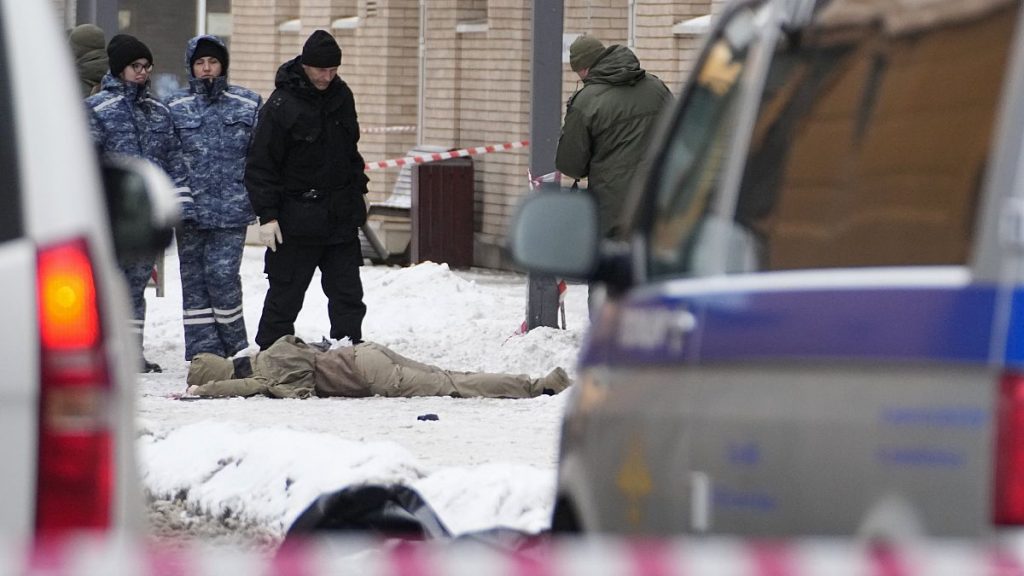The Federal Security Service (FSB), Russia’s principal security agency, has announced the apprehension of four Russian nationals suspected of plotting to assassinate high-ranking officials within the Ministry of Defence. This announcement comes on the heels of the assassination of Lieutenant General Igor Kirillov, chief of Russia’s Radiation, Biological, and Chemical Protection Forces, who was killed by a bomb concealed on an electric scooter outside his Moscow apartment on December 17th. The FSB claims the suspects were planning to execute their plot using a remotely detonated car bomb against one official and an explosive device hidden within an envelope against another. The identities of the targeted officials and the apprehended suspects remain undisclosed.
The timing of this alleged plot and its subsequent uncovering by the FSB closely follows the successful assassination of Lieutenant General Kirillov, an incident that has shaken the Russian security apparatus. Kirillov’s death, which also claimed the life of his assistant, was attributed to a bomb planted on an electric scooter parked near his residence. Responsibility for the attack was claimed by Ukraine, marking a significant escalation in the conflict’s reach into the Russian capital. Ukrainian involvement has not been independently verified.
In connection with Kirillov’s assassination, the FSB had previously detained a citizen of Uzbekistan. The FSB asserted that the Uzbek national confessed to being recruited by Ukrainian special services, implicating Ukraine directly in the general’s death. The assassination and the subsequent arrest underscore the increasingly complex and clandestine nature of the conflict between Russia and Ukraine, with both sides engaging in covert operations and targeted attacks beyond the conventional battlefield.
The FSB’s announcement of a thwarted assassination plot against other senior military officials suggests a broader campaign by Ukrainian forces to target key figures within the Russian military hierarchy. The alleged use of car bombs and concealed explosives reflects a sophisticated level of planning and execution, indicating a concerted effort to destabilize Russian military leadership and disrupt its operations. While the details of the alleged plot remain shrouded in secrecy, its unveiling by the FSB serves to highlight the ongoing intelligence war between the two nations and the escalating tensions underlying the conflict.
The assassination of Lieutenant General Kirillov and the alleged plot against other military officials represents a significant blow to Russian security. President Vladimir Putin publicly acknowledged the security lapse, characterizing Kirillov’s death as a “major blunder” and urging the security services to learn from the incident and bolster their effectiveness. This admission of failure underscores the vulnerability of even high-ranking officials within Russia to targeted attacks and raises questions about the effectiveness of the country’s internal security measures.
The series of events, starting with the assassination of Lieutenant General Kirillov and culminating in the arrest of four individuals allegedly plotting further attacks against senior military personnel, paints a picture of an escalating proxy conflict marked by clandestine operations and targeted killings. The FSB’s assertions about Ukrainian involvement, while not independently confirmed, point to the increasing sophistication and audacity of operations attributed to Ukrainian forces. The incidents also expose vulnerabilities within Russia’s security apparatus and raise concerns about the potential for further escalation of the conflict beyond the traditional battlefield. The lack of transparency surrounding the details of both the assassination and the foiled plot further fuels speculation and underscores the intense information warfare being waged alongside the kinetic conflict.

